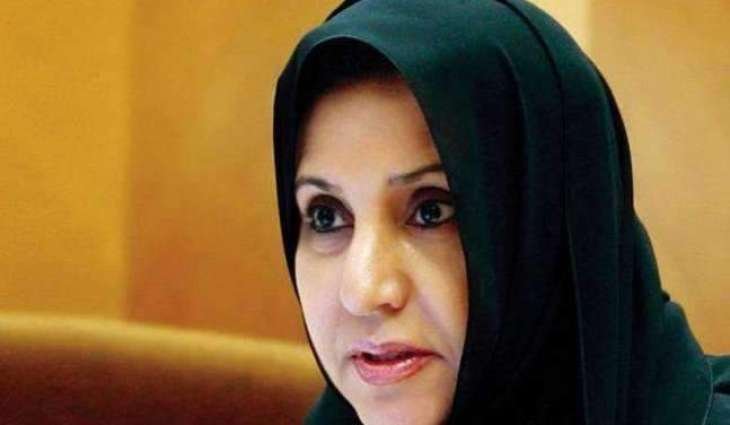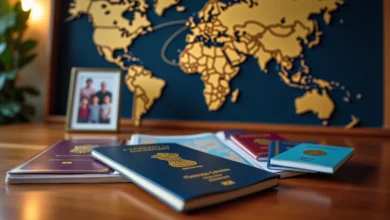
The Life of Sheikha Fatima: Mother of the Nation
Sheikha Fatima bint Mubarak Al Ketbi, revered as the “Mother of the Nation” by the people of the United Arab Emirates, embodies the spirit of leadership, empowerment, and compassionate motherhood. Her contributions have been invaluable in promoting gender equality, education, and women’s rights, making her a pivotal figure in the nation’s journey towards social development and cultural heritage preservation. Through her advocacy and humanitarian work, Sheikha Fatima has not only shaped the lives of countless women and children but also played a crucial role in molding the UAE’s progressive stance on women’s participation in society, politics, and business.
This article delves into the remarkable life of Sheikha Fatima, starting with her family and upbringing, which laid the foundation for her deep-rooted values and commitment to humanitarian causes. It further explores her partnership with Sheik Zayed, highlighting how their united vision for the UAE has led to significant advancements in women’s education, health, and employment. The legacy and impact of Sheikha Fatima on both the local and global stages are scrutinized to understand how her leadership and initiatives have propelled the United Arab Emirates to the forefront of gender equality and empowerment, making her story not only inspirational but also a testament to the pivotal role of women in society’s advancement.
Family and Upbringing
Growing Up in Al-Hayer
Sheikha Fatima bint Mubarak was born in the tranquil town of Al Hayer, located in Al Ain within the Emirate of Abu Dhabi. Her early years were shaped by the teachings of the Holy Quran and the Hadith, as she delved into the interpretations and sayings of the Prophet. Her education was diverse, encompassing subjects across literature and humanities. Sheikha Fatima developed a keen interest in poetry, which was complemented by her studies in history, politics, and diplomacy. Her academic journey was crowned by receiving an Honorary Doctorate in Humanities and Social Studies from the University of Algeria.
Influence of Bedouin Traditions
Raised under the care of the Arab tribe Bani Kutub, Sheikha Fatima’s upbringing was deeply influenced by Bedouin traditions, which are known for their strong values of hospitality, loyalty, and respect. These early experiences in a Bedouin community played a pivotal role in shaping her character and her later endeavors in public service and leadership. The values instilled during her formative years in Al Hayer were reflected in her lifelong commitment to social justice and civic engagement, earning her the esteemed title of “Mother of the Nation.”
Partnership with Sheik Zayed
Marriage and Relocation
Sheikha Fatima bint Mubarak Al Ketbi’s life took a pivotal turn when she married Sheik Zayed Al Nahyan in 1960, during his tenure as the ruler’s representative in the eastern region of Abu Dhabi. Their union was marked by a shared vision for the future of the United Arab Emirates. Following their marriage, Sheikha Fatima moved to Abu Dhabi in 1966 when Sheik Zayed became the ruler, setting the stage for her future role in the nation’s development.
Supporting the UAE’s Formation
Sheikha Fatima played a crucial role behind the scenes as the UAE was officially formed on December 2, 1971. Her influence extended beyond the public eye, as she actively supported Sheik Zayed’s efforts to unite the emirates into a single nation. Sheikha Fatima’s commitment to women’s rights, education, and family development became integral to the foundational values of the newly established country. Her endeavors in promoting adult literacy and education have been fundamental in shaping the UAE’s policies towards gender equality and empowering women in various sectors of society.
Legacy and Impact on Society
Fostering Women’s Rights
Sheikha Fatima bint Mubarak has been instrumental in advancing women’s rights in the United Arab Emirates. Her leadership led to the creation of the Fatima bint Mubarak Women, Peace and Security Center of Excellence, which plays a crucial role in promoting gender balance in security and peace. Under her guidance, the UAE National Action Plan for the implementation of UN Security Council Resolution 1325 was established, focusing on women, peace, and security. This initiative has significantly contributed to the UAE’s impressive ranking in global indices for women’s empowerment, showcasing the nation’s commitment to fostering an inclusive society.
Key Humanitarian Efforts
Sheikha Fatima’s humanitarian efforts are reflected in her comprehensive approach to social development. She founded several institutions like the Family Development Foundation and the Supreme Council for Maternity and Childhood, enhancing the quality of life for families and children across the UAE. Her initiatives have supported women’s participation in various sectors, including the economy and education, and have paved the way for increased female involvement in the security sector. Thanks to her efforts, the UAE has seen a remarkable increase in women holding leadership roles, contributing significantly to the nation’s development and international standing.
Through her unwavering dedication and innovative leadership, Sheikha Fatima bint Mubarak has undeniably etched her mark on the hearts of the UAE’s populace and beyond, embodying the essence of empowerment, philanthropy, and progressive governance. Her seminal role in spearheading initiatives that have paved the way for gender equality, women’s education, and the overall betterment of society showcases a legacy that transcends borders. Her story, rooted in cultural reverence and forward-thinking, is a beacon of inspiration, underlining the pivotal role of visionary leadership in societal advancement.
As we reflect on the transformative journey of Sheikha Fatima and her enduring impact, it becomes evident that her contributions extend well into the fabric of global humanitarian efforts and the empowerment of women worldwide. The path she has charted for the UAE in promoting peace, security, and gender balance serves as a guiding light for future generations. Her legacy not only honors the title “Mother of the Nation” but also firmly positions the UAE at the forefront of progressive change, encouraging continued dedication to these principles in the quest for a more inclusive and equitable world for all.






